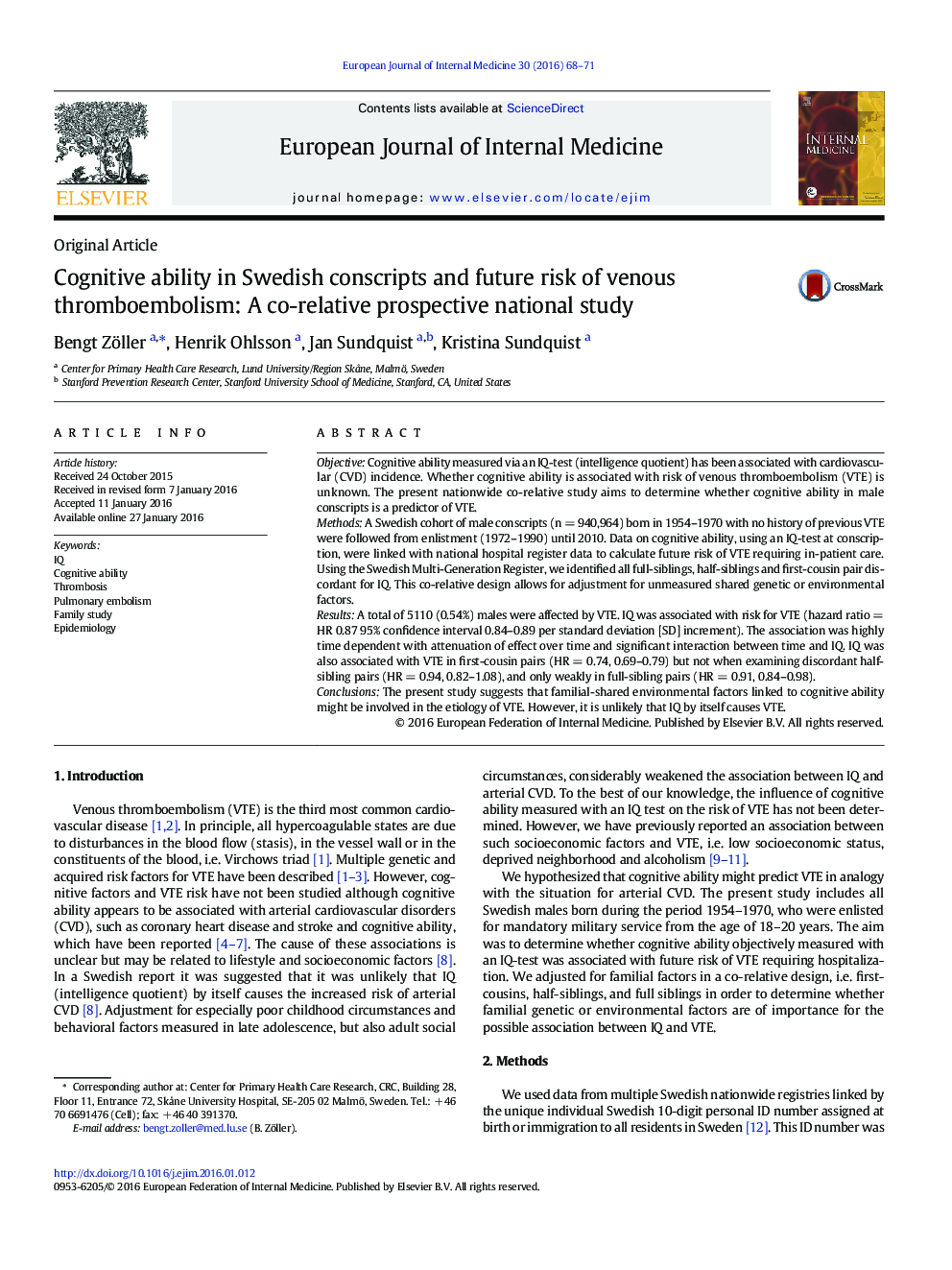| Article ID | Journal | Published Year | Pages | File Type |
|---|---|---|---|---|
| 3465906 | European Journal of Internal Medicine | 2016 | 4 Pages |
•Whether cognitive ability associated with risk of venous thromboembolism (VTE) is unknown.•The present co-relative study aims to determine whether cognitive ability is a predictor of VTE.•IQ is associated with risk for VTE in the full sample and in first cousin pairs.•IQ is not associated with VTE in half-siblings and only weakly in full siblings.•The present study suggests that familial factors linked to cognitive ability are involved in VTE.
ObjectiveCognitive ability measured via an IQ-test (intelligence quotient) has been associated with cardiovascular (CVD) incidence. Whether cognitive ability is associated with risk of venous thromboembolism (VTE) is unknown. The present nationwide co-relative study aims to determine whether cognitive ability in male conscripts is a predictor of VTE.MethodsA Swedish cohort of male conscripts (n = 940,964) born in 1954–1970 with no history of previous VTE were followed from enlistment (1972–1990) until 2010. Data on cognitive ability, using an IQ-test at conscription, were linked with national hospital register data to calculate future risk of VTE requiring in-patient care. Using the Swedish Multi-Generation Register, we identified all full-siblings, half-siblings and first-cousin pair discordant for IQ. This co-relative design allows for adjustment for unmeasured shared genetic or environmental factors.ResultsA total of 5110 (0.54%) males were affected by VTE. IQ was associated with risk for VTE (hazard ratio = HR 0.87 95% confidence interval 0.84–0.89 per standard deviation [SD] increment). The association was highly time dependent with attenuation of effect over time and significant interaction between time and IQ. IQ was also associated with VTE in first-cousin pairs (HR = 0.74, 0.69–0.79) but not when examining discordant half-sibling pairs (HR = 0.94, 0.82–1.08), and only weakly in full-sibling pairs (HR = 0.91, 0.84–0.98).ConclusionsThe present study suggests that familial-shared environmental factors linked to cognitive ability might be involved in the etiology of VTE. However, it is unlikely that IQ by itself causes VTE.
